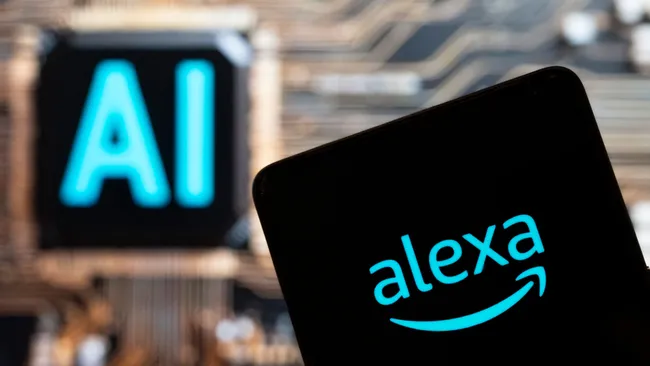Amazon is embarking on an ambitious journey to revolutionize its popular voice assistant, Alexa. While Alexa has primarily been used for simple tasks like setting timers or checking the weather, Amazon is now positioning it to become a sophisticated AI-powered personal concierge, leveraging advanced generative AI technologies.

>>>KL4S2P31B Replacement Battery for Donzhkli E2 E3E1 Exp X1 X3 X5
Alexa’s Transformation: The Shift to Generative AI
For years, Alexa has operated as a straightforward assistant, answering questions and managing basic tasks. However, under the leadership of Amazon’s AGI head, Rohit Prasad, the company plans to implement a “brain transplant” for Alexa. This involves replacing its existing question-answering framework with state-of-the-art generative AI models, enabling Alexa to handle complex, personalized tasks.
The envisioned Alexa 2.0 will go far beyond its current capabilities, aiming to function as an intelligent digital butler. This assistant would proactively manage your smart home, schedule appointments, and provide nuanced recommendations—all with a conversational, human-like touch. However, as Prasad admits, this transformation is rife with challenges.
The Challenge of Reliability: Accuracy Over Guesswork
One of the most critical issues Amazon faces is addressing AI hallucinations—errors where the assistant provides answers that sound credible but are incorrect. While mistakes like playing the wrong song might be forgivable, errors in high-stakes tasks, such as booking a dinner reservation or managing household schedules, could erode trust in Alexa.
For users to fully embrace Alexa 2.0, it must offer not only accurate responses but also consistent reliability. Confidence in the assistant’s abilities will determine whether people use it for more than basic trivia or timers.
Speed Matters: Closing the Response Gap
Currently, Alexa is known for its near-instantaneous responses. However, integrating generative AI has introduced delays, with some queries now taking up to 10 seconds to process. This delay, while short, could frustrate users accustomed to faster replies. Amazon’s success hinges on optimizing response times to maintain Alexa’s appeal while delivering more advanced, AI-driven interactions.
Keeping Alexa’s Personality Intact
As Alexa evolves, Amazon is committed to preserving and enhancing its unique personality. Rohit Prasad highlights that Amazon is recruiting voice and language experts to fine-tune Alexa’s tone, diction, and overall demeanor, ensuring it remains engaging and conversational.
Generative AI’s probabilistic nature makes it adept at casual conversation, but this strength can become a liability in critical applications. Striking a balance between charm and precision is key to ensuring Alexa feels human-like without compromising on reliability for essential tasks.
>>>BP14435A Replacement Battery for Midea i5 Extra, i5 Young, i5 Blink, i9 EYE, i50 Pro
What’s Next for Alexa?
While Amazon has historically led the market in smart speaker adoption, its advantage may diminish if Alexa doesn’t keep pace with competitors offering similar or superior features. To remain competitive, Amazon must differentiate Alexa as more than just a voice assistant—it must become indispensable.Success will depend on overcoming significant challenges, including:
- Eliminating AI hallucinations to ensure accurate responses.
- Improving response times to match user expectations.
- Enhancing Alexa’s personality to keep interactions engaging yet professional.
- Staying ahead of rivals in a rapidly evolving AI landscape.
If Amazon succeeds, Alexa could redefine the role of AI in our daily lives, transforming from a simple assistant into a trusted, indispensable partner.